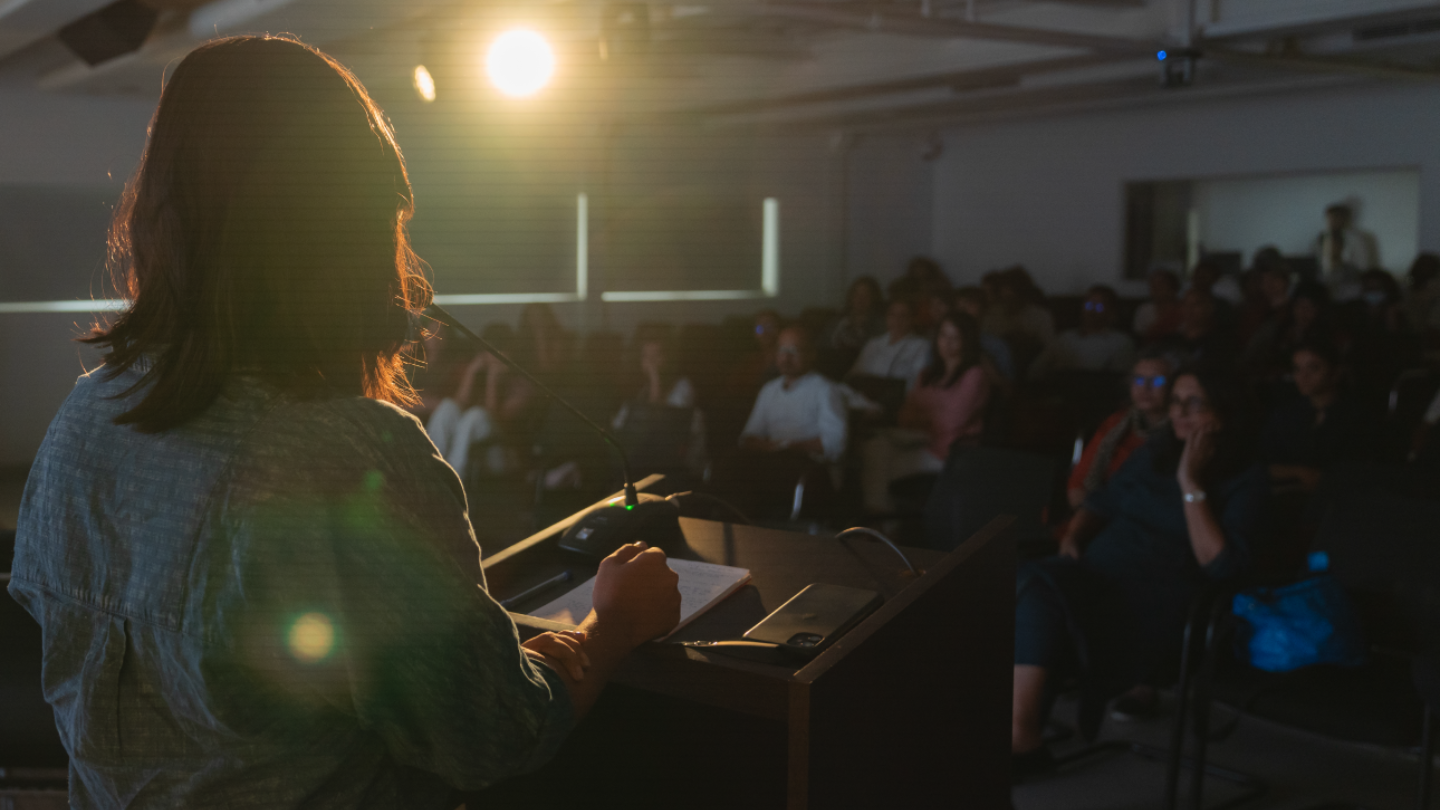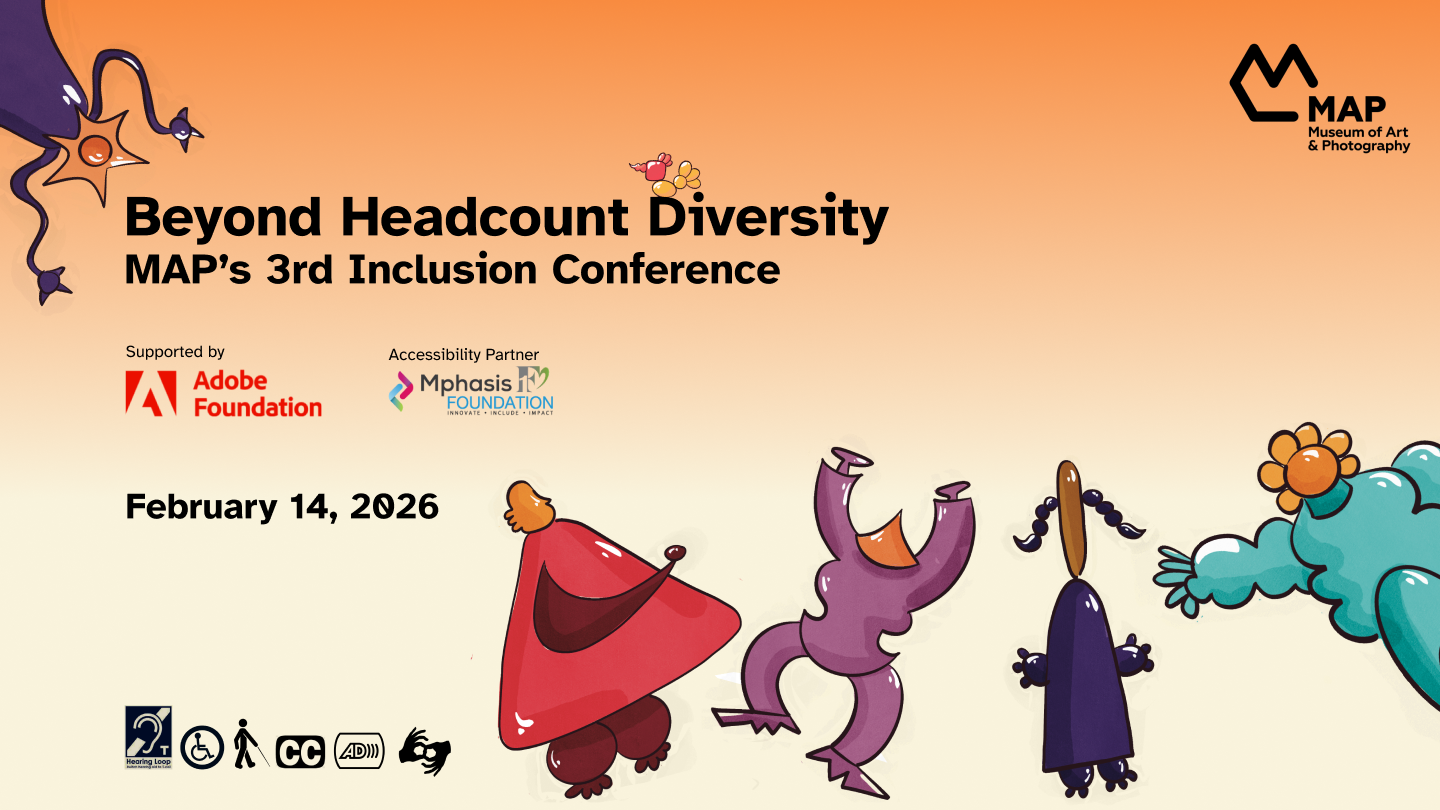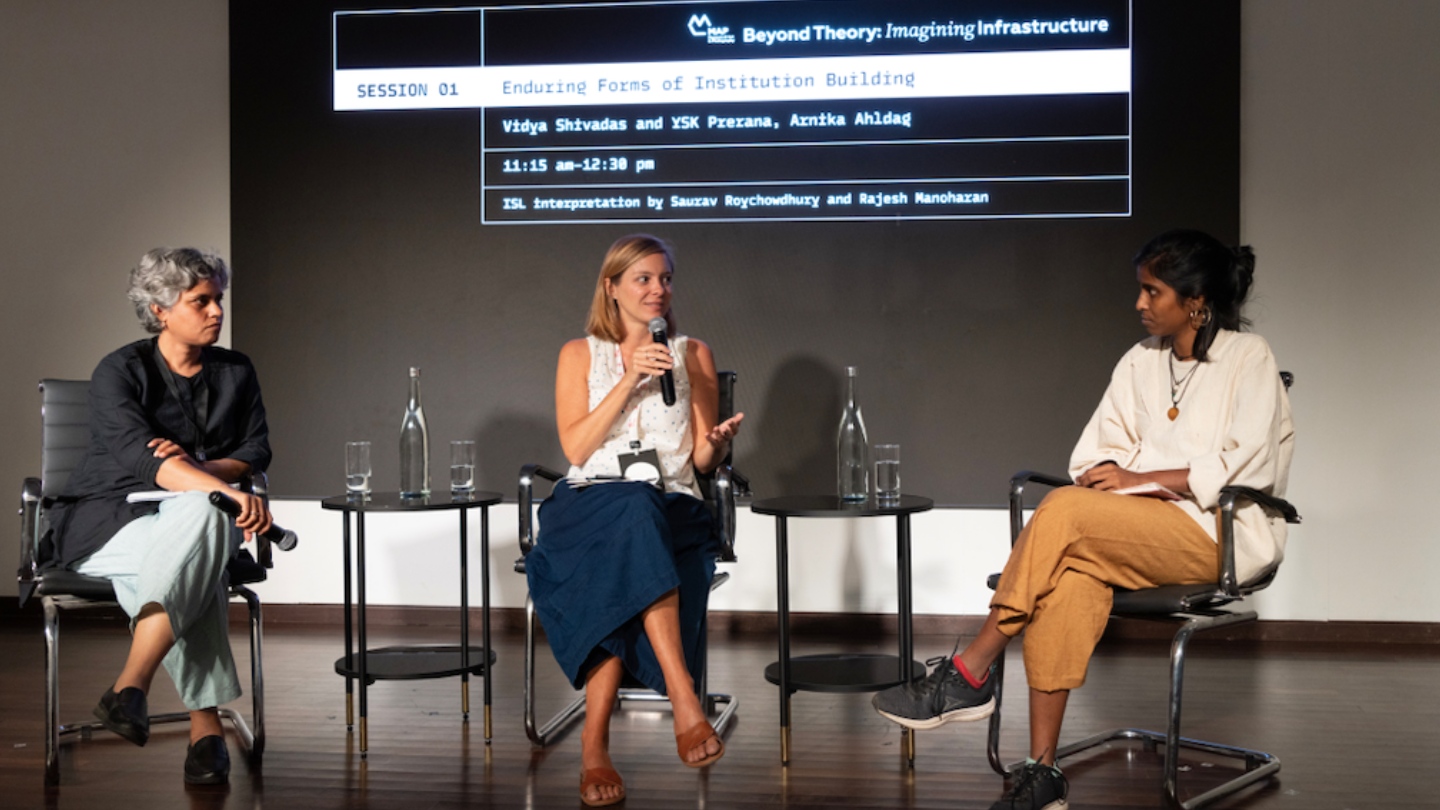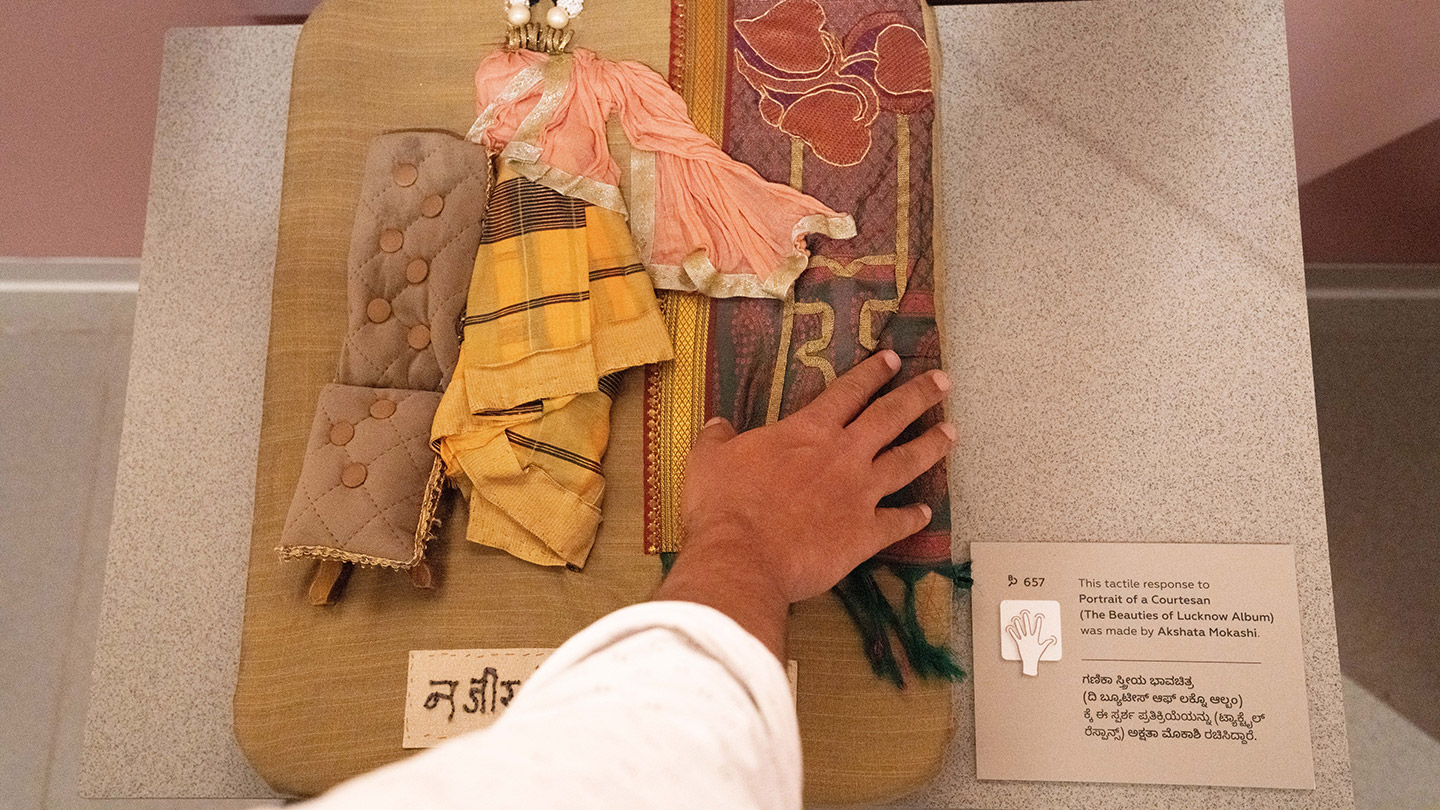Conferences
Beyond Theory: Continuing the Work

“By walking, you make the path … ”
–Antonio Machado
If we imagine our work in the arts as a path we have charted—sometimes in silos and other times together—what moments would we mark as those of great momentum, as roadblocks, as drudgery, and as breathers?
The Beyond Theory conference, hosted in conjunction with the exhibition VISIBLE/INVISIBLE: Representation of Women in Art through the MAP Collection, was conceptualised as an annual gathering of artists and art workers who employ a feminist lens in practising, curating, organising and more. Here, employing a feminist lens means that their practices expose power hierarchies framed by factors including but not limited to gender– like caste, race, sex, sexuality and more.
The first iteration of the conference looked at practice and the second at the infrastructure that enabled those practices. Each panel in both the conferences could stand alone, but was bound by a common way of seeing and understanding–how can feminist practices help carve out a less precarious, sustainable and just sector for us? How has it done it before in pockets and niches? How does it continue to do it and how could we scale or replicate it in meaningful ways?
For the concluding conference, we want to take stock of where we are. Reflecting on the three years of work and conversations we have had under the conference and the permanent exhibition, this year’s iteration will be a sweep–its aim, not to mark success but to be honest about the lay of the land. Since speaking of various concerns–of representation, of precarity, of a crisis of care, of lack of funding, of impunity, of inaccessibility, and exclusion–on a micro level, at this conference, and on a macro level, at many more forums–what have been the shifts and silences that have gotten us here –for better or for worse?
As we mark the last year of the exhibition, we want to gather artists, art workers, writers, academics and institutions to reflect on the evolution of their work in the sector, speak to each other regarding doubt, success and failure and look back at the blueprints of our work.
For any queries, please reach out to visible@map-india.org
Please note: This conference is free to attend. Registration is required for participation.
You can download a copy of the programme schedule here.
Programme Schedule
Friday, April 25, 2025
10:00 am–10:05 am Welcome Address by Arnika Ahldag
10:05 am–10:10 am Introductory Remarks by Mehreen Yousaf
10:10 am–10:55 am Keynote by Nishant Shah
Session 01: Display/Distribute: Shape-Shifting Strategies and Mediated Forms
11:00 am–12:00 pm
Sukanya Baskar and Sarasija Subramanian on experimental conditions in exhibition and publishing formats. Focusing on strategies for engaging publics with works, writing, and research by cultural practitioners, the speakers will share notes on formats of presentation, design, curation and their interconnected receptions.
Session 02: Shared Tools, Shared Time
12:15 pm–01:15 pm
Vishaka George in conversation with documentary photographer Palani Kumar on the ways in which his practice expands into educational, curatorial, and programmatic work.
LUNCH
Session 03
02:15 pm–03:00 pm
Walkthrough of Vaanyerum Vizhuthugal: Roots that Reach for the Sky with curator Jaisingh Nageswaran
Session 04: On Revolutionary Failure
03:15 pm – 04:15 pm
Arushi Vats and Meenakshi Thirukode on the many dimensions of solidarity—what failure and rupture within collective spaces can teach us, and emergent strategies from revisiting historical blueprints.
Session 05: A Knowledge Ecosystem of Care and Collaboration
04:30 pm – 05:30 pm
Soujanyaa Boruah on participatory research and ethnography in arts and design—drawing from the speaker’s practice—sharing insights from Project Tension, in conversation with Ishita Sharma.
Session 06: Film screening and Discussion
06:00 – 07:00 pm
A screening of Thokei by Malik Irtiza, followed by the filmmaker in conversation with Amjad Majid.
Saturday, April 26, 2025
Session 7: Forming and Reforming in Shared Labour
10:00 am–11:00 am
Avni Sethi and YSK Prerana in conversation with Arnika Ahldag on the concerns and learnings that marked their successive tenures with the Conflictorium.
Session 08: A Collective Heart
11:15 am–12:15 pm
A conversation between Priyankar Bahadur Chand from Kalā Kulo, Indu Tharu, and Lavkant Chaudhary on practices of collaboration and co-production, highlighting collective bodies of work—including Tika Chedna Angana, a project that documents the tika body-marking traditions of the Tarai community.
Session 09: The Whole of Many Roles
12:15 pm – 01:15 pm
Annalisa Mansukhani and Sukanya Deb on the hyphenated identities of art workers, and the frameworks that ‘both/and’ associations introduce for interdisciplinary work—being ‘unfenced’ in practice as necessary to navigate spaces of artistic, educational, and cultural production without having to pause for identification.
LUNCH
Session 10: How to Make and Mend a Keepsake
02:30 pm–04:00 pm
A sharing and making session with sisters Hawa, Maryam, and Heela, as they walk us through their journey of starting Anar Studio, followed by an embroidery lesson to make or mend a personal keepsake. Limited spots available, register here.
Session 11: Between Us, A Record
04:00 pm–05:00 pm
NayanTara Gurung Kakshapati of Nepal Picture Library and Ishita Shah of Curating for Culture on archival initiatives that create new ways of accessing our individual and collective experiences; creating a public memory that is multicultural, pluralistic and enables deeper understanding of and engagement with regional histories.
Closing Remarks
05:00 pm–05:15 pm
Performance: Talk to Me
06:30 pm–07:30 pm
A performance by Anuja Ghosalkar, Amaldev PR, Bhavana Rajendran, Gavati Wad and Nidhi Mariam Jacob, Aliasger Dhariwala, Vikrant Thakar and Akshay Khaire. Register for the performance here.







